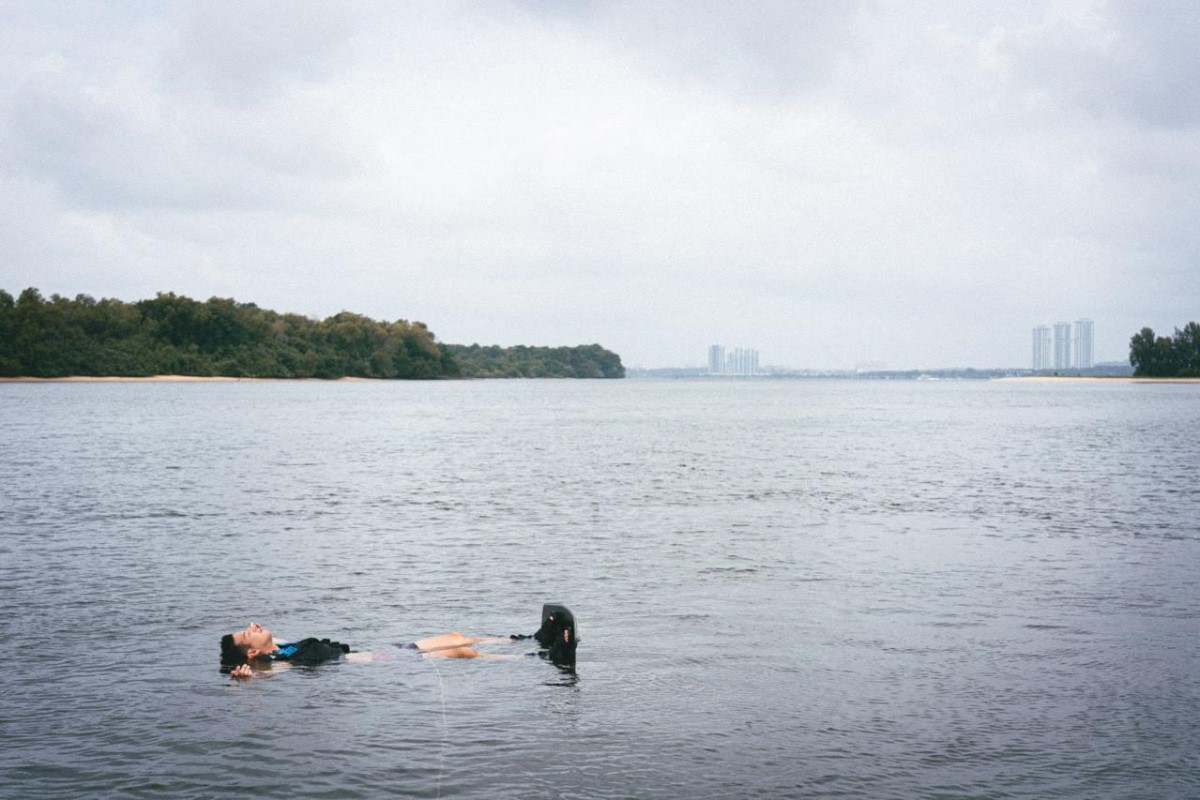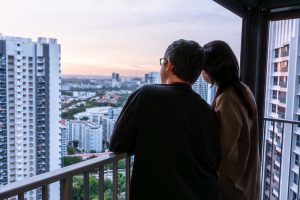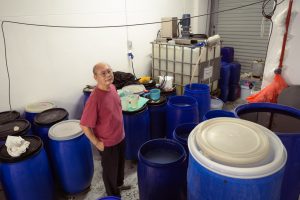Top image: Zachary Tang for Rice Media
All names have been changed
Financial Independence, Retire Early (FIRE in short) is an economic and lifestyle movement characterised by mindful frugality, extreme savings and prudent long-term investments. Coined by Vicki Robin and Joe Dominguez in their book Your Money or Your Life, it has come to be adopted in recent years in the United States and New Zealand, where people explore different FIRE lifestyles like Lean FIRE, Coast FIRE, and Barista FIRE.
In Singapore, the FIRE movement is heating up amongst those questioning the traditional definitions of career achievements and retirement. At present, the statutory retirement age in Singapore is 62. It will be raised to 63 in the middle of this year and to 65 by 2030.
ADVERTISEMENT
Adherents go against the norm by aiming to bring forward their retirement by decades. It’s a phenomenon that speaks volumes about the rising needs of Singaporeans and the perceptible shift in priorities in our society.
Changes in life priorities spark FIRE
Bel tears up as she recalls missing her grandmother’s funeral several years ago because she did not have enough days of compassionate leave. She also had an uncle to whom she was pretty close, whose funeral she could not attend, because her organisation gave compassionate leave for the loss of immediate family members only.
When she visited her grandmother in the hospital, she noticed that most people could only see their loved ones in the free time they could find outside of work.
That had her thinking, “What if I had more freedom or flexibility with my time? I know I need to follow the rules because I am drawing a salary. I felt trapped.”
Bel is a teacher in her mid-30s who has done her sums to retire at 40. She can delay this by five years when she starts a family. Her strategy for FIRE is to invest in the long term. As her investment journey began in her early 20s, she had a good head start compared to her peers.
As the eldest of the family, she feels a greater sense of responsibility towards her parents, both of whom have chronic conditions.
“I want to be able to be there for them. I don’t know what will happen, so I want to be prepared for the worst-case scenario. If I have to quit my job to take care of them, I want to have the freedom and choice to do it.”
In our culture of excess, where there are overt displays of wealth, downscaling and frugality may sound like deprivation. Opting for a frugal lifestyle can even be seen as a conscious resistance to the norm.
Do I want or need this? Can I get something better somewhere else at the same price? Must I buy this now, or can I buy it later? Do I have to jump on board just because others buy this product, especially when I don’t need it? Do I need to buy a branded item? Am I buying something because it is trending? In terms of sustainability, how long can this product last me? Are there good reviews about it?
Shopping takes longer when I go through this intentional checklist of conscious frugality. I often ask myself if it is worth living like this, but this practice helps to keep me and my wallet in check. Now that I think about it, my consumption patterns may probably lead me to seriously consider pursuing FIRE too.
Struggles and opportunity costs
I believe that conscious resistance to the norm must surely come with struggles and sacrifices.
ADVERTISEMENT
Michelle has been burned by other people’s judgments of her FIRE lifestyle, but she shrugs it off.
“I love hawker centres, but for some people, they cannot… they have to go to cafes and restaurants…. The clash of interests may result in polarising attitudes with the people I hang out with, which is why I will need to choose my company wisely. Some people assume that I am either poor or rich and arrogant. Some even think I am crazy, judging me for my decisions. Well, I cannot change their mindset, but that only reveals a lot about themselves and their perspectives.”
She focuses her discipline and commitment on striking the right balance.
“There is also this danger of depriving yourself, like surviving on instant noodles in a bid to save money. What if your physical health suffers because you eat very poorly? Also, if you have to be stressed about money every day and cause yourself a lot of mental stress, FIRE is not worth pursuing.”
The 30-something’s foray into the world of FIRE stemmed from the pressures she felt of the unrelenting corporate rat race in her 20s when she was a manager in the public service. She made the switch into business consultancy in 2016 and is on track to retire by 50. Her FIRE strategy is guided by frugality, and living frugally has become a way of life that gives her more choices.
“When you have more money, you have more agency. What if my parents require medical attention at some point? What if I want to give everything up in Singapore to move to New Zealand? I want to be able to say that I can afford it.”
Michelle thinks that some people have certain misconceptions of FIRE, for instance, having to lead a very extreme lifestyle where one deprives oneself of something in order to save and invest at least 70% of their income.
In her case, her ethos of frugal living still allows her to spend money on things of good value, meaningful experiences or if it makes someone happy.
On the other hand, Felicia allocates a monthly budget of S$500 for daily necessities like food and transport. Being asset-rich but cash-poor is a constant struggle she has to manage, as she likes to enjoy living in the present yet also wants to plan ahead.
Influenced by her family members to put the bulk of her savings into investments when she first started working, Felicia is a civil servant in her early 30s who aims to retire by 55 when she no longer needs to work for money. She channels most of her savings into real estate and investments—this leaves her low on savings but generates a steady stream of dividends and rent. She aspires towards a kind of retirement, where she can spend time meaningfully doing voluntary work and connecting with others in non-profit organisations.
“Locking down my money for the next 10, 15 years means that I can’t see my hard-earned money growing significantly until then,” she says with a sigh.
From our conversations, the idea of delayed gratification—the ability to delay short-term, immediate self-gratification in favour of a greater long-term reward—comes to mind. It seems to be a defining characteristic of those who are pursuing FIRE.
Camp FIRE vs Camp YOLO
Every FIRE proponent I spoke to was very clear that the FIRE lifestyle is not for everyone.
Cal says, “Not everybody prioritises FIRE…. YOLO means you don’t plan for tomorrow and lack the incentive to save or invest because you are content with the status quo. You want to spend money on things that make you happy to live life to the fullest. FIRE is like the exact opposite.”
Cal’s FIRE journey was ignited a few years ago when she met someone living the retiree’s life in his 40s due to investing very early on in his career. He told her that she could achieve it too.
“He told me to invest excess cash whenever I have any. I researched the kinds of investments he talked about and the kinds of returns I could generate. I also learnt about the FIRE movement during that time.”
Cal, a home-based business owner in her early 30s, is convinced that it is within her reach to retire in her 40s. With the creation of multiple income streams, she can direct the additional income back into her investments. Her dream is of an alternative lifestyle, with the flexibility and freedom to go wherever and whenever she wants.
“I only want to work two days a week, pursue my hobbies with the remaining time, like sports, travelling—I enjoy travelling—maybe I can live overseas for maybe half a month and then return to Singapore after that.”
“Some people think that if they can only save S$200 every month, why should they bother saving it since it’s so little anyway? To me, this doesn’t make sense. If you are unfaithful with the little, you will not be faithful with the much. If someone gives you S$100 and sees that you cannot manage it, do you still think you can be trusted with a million dollars one day?”
We are all different candles
What is enough for you may vary from what it is for your neighbour. Financial independence is subjective when we all have different starting points and aspirations. Our notions of retirement also vary, from spending time on our hobbies to taking up voluntary work in our communities or even doing nothing at all. Our lives are shaped by our family backgrounds, life experiences, and lack thereof, leading us to perceive value and money differently.
In Michelle’s words, “Some people do not want to retire early, and some people cannot retire early. I feel that having the ability to pursue a FIRE lifestyle is a kind of privilege—having high earning power and passive income allows one to FIRE more easily.”
This leads me to think about how privilege is closely tied to the intergenerational transfer of wealth and social and cultural capital. Those born into families with privileged backgrounds are likely to receive more support and resources by affiliation from the start, which puts them ahead financially.
As Michelle navigates her privileges, she contemplates: “If I were born in a place where I am unable to receive a proper education, and my family has debt, things would turn out very differently. Some people cannot even make ends meet, let alone think of pursuing FIRE.”
I am reminded of my conversation with Bel, who recounts that she and her fiancé witnessed their parents going through financial difficulties when they were younger.
They knew how it felt not to have enough money, and those feelings have stayed with them till now. She acknowledges that the experiences have also somehow influenced the choices and decisions as adults.
The folly of youth
Austin is an ex-teacher in his early 30s who has successfully made the career switch into the financial sector and is currently working with clients planning to pursue FIRE.
As young parents of a toddler, quality family time takes precedence for his wife and him. They would rather spend time going on trips together and spending on items that would give them better life satisfaction. Therefore, early retirement is not on Austin’s priority list, though he hopes to be free of liabilities by 60.
Austin is in a unique position of having observed young adults who have yet to start work and now advising working adults who want to retire early. He noted that digital currencies were gaining popularity among his teenage students while still teaching.
When he met his ex-students in 2014, he learnt that some had made a 60-fold return on their investments in crypto in just a year or so—and were splurging on branded items, like a pair of Gucci shoes that cost about $800.
“I told them if you don’t treasure your wealth… it’s going to go downhill someday.”
It gave him a look into the YOLO mindset that stands in stark contrast to the FIRE mentality of his clients.
Austin believes that digital currencies and non-fungible tokens (NFTs) are here to stay, saying that it is a wave that we cannot avoid or delay. But how investors treat their returns can run the gamut from FIRE to YOLO.
Igniting the flame
While FIRE means different things to each of its proponents, they all implicitly agree on one thing—sound financial knowledge empowers us to make important decisions about our careers and life goals.
Our conversations have led me to see that Singaporeans have begun to redefine our careers and our relationship with work and money. How are we pursuing our goals and taking ownership of our time and personal finances? This is a question that seeks honest answers from ourselves.
For me, I cannot imagine life without meaningful work. Some people thrive in their workplaces and may never think of leaving their jobs. However, I believe that it is essential to have the option to leave or opt out of undesirable situations that we can do better without.
In fact, after knowing that there are different retirement philosophies out there, I am starting to see that ‘Barista FIRE’ is a lifestyle that would suit my needs. It is termed as such because some people choose to retire early and then work part-time—such as, but not limited to, being a coffee shop barista—instead of quitting work entirely and living off their savings and investments.
That being said, I believe what is more crucial is that we have access to choices and be able to make them whether we decide to embark on FIRE or not. And to get to them, we will need to begin with the fundamentals like building up our savings, assessing our needs and wants, making prudent long-term investments and going debt-free as much as possible.
Perhaps Michelle puts it best. “We FIRE on our terms. Whether it’s $1 million or $3 million—we decide what is enough for ourselves as long as we are aware of the choices we have. That awareness is what makes all the difference.”






